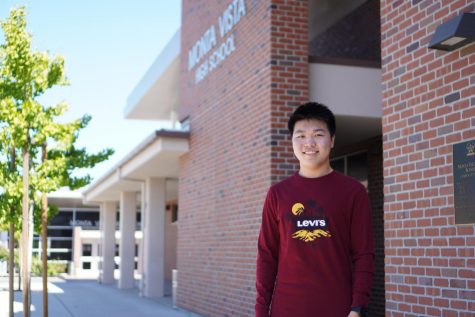Supporting the staff
Teachers share their experiences with their own mental wellness
October 24, 2018
The turning point of now history teacher Scott Victorine’s first career occurred as he was eating lunch at his former law firm. As a paralegal in immigration law, Victorine was overwhelmed with stress. He sat staring at his lunchbox one hectic day and he decided he needed to find another career path.
“For me, sitting in an office environment wasn’t my thing,” Victorine said. “I had always known I wanted to teach, but I was kind of scared to do it. I didn’t think I would be able to make a living off of it. I went back to work that day and I started looking at teaching credential programs online, and what I would need to do, and the ball just started getting rolling. I just went with it – I didn’t look back.”
Making the transition into teaching came at a hefty cost. Victorine pushed through the busiest years of his career, struggling to meet the demands of teaching while also maintaining his personal life. During the 2015-16 school year, Victorine balanced attending graduate school, writing his master’s thesis and teaching a mix of both general and special education classes. In addition, he was responsible for working with a group of students on a case study, checking up on them and documenting their progress.
“The first few years of teaching are really busy,” Victorine said. “It’s go, go, go. It’s nonstop. You sacrifice financially because when you’re student teaching, you don’t get paid. You sacrifice on a personal level because it’s time-consuming. You’re going to class [and] you’re teaching, so you’re going to work also. You’re writing lessons, you’re creating lessons, and you’d like to think you’re going to stay a week ahead, but it doesn’t always happen that way.”
Similarly, English teacher Megan Choate shares that the time and energy she pours into teaching extends beyond the conventional parameters of a full-time job, as she works many hours before and after the school day.
“Beyond that, teaching is very much a humane profession,” Choate said. “Every day, I’m interacting with students on a human level. It’s very rewarding, but it becomes important for me to prioritize my self care so I can be the best support for students I can. It’s a different kind of balancing act from other professions.”
Victorine maintains a positive outlook on his teaching. At one point, Victorine was spending day and night simply teaching and creating lessons for his U.S. History class. Although he grappled with the perpetual workload, Victorine never viewed teaching as overly stressful because it was a profession he was genuinely passionate about.
Student advocate Richard Prinz agrees that the way one deals with stress can greatly affect their mental wellness. He mentions that while both students and staff have many stressors, one’s internal attitude can have a large effect on the overall anxiety they feel. Prinz believes that when working to improve mental wellness, the first step lies in looking past the stigma behind mental health.
“Usually, [when] we think stigma, we think people are embarrassed what others will think,” Prinz said. “But sometimes we’re afraid ourselves to talk about our inner life because it has a hold of us and we’re afraid it will become more real and predominant. But usually the more we’re afraid of it, [the more we] give it power.”
For some teachers, there are tangible methods for increasing mental wellness. Choate consciously spends time destressing and is aware of the steps she takes to keep her mental health in check.
“If I feel overwhelmed, I’ll make a list of things I have to do,” Choate said. “Sometimes I’ll step back and take a couple of minutes to breathe and just sit with myself before returning back to work, as a way to refocus. And then I do try to make sure that I’m doing hiking and yoga outside of school to help my overall mental stability when I’m here.”
The administration has also begun to take action to alleviate stress in teachers as well as students.
“Stabilizing student stress [was] one of our staff’s collective commitments for the past four years and this year, it was decided to include staff as well,” assistant principal Nico Flores said. “We are doing this through our payday barbecues. Each teacher will mark the last day of each month on their calendar so that they can come and enjoy good barbecue while chatting with colleagues from different areas of school. We are [also] sending out positive messaging to staff about positivity and mindfulness while highlighting the good work that is taking place in PLCs.”
Choate explains that not only does the increased awareness around staff mental health better the teachers, but it will also lead to lasting positive effects for the entire school community.
“As staff it is very easy to get stressed out or feel overwhelmed [and] have so many different things going on both at work and at home,” Choate said. “So making sure that staff mental health is put as an equal priority is benefiting us and ultimately benefiting students [with] the way we’re able to make connections in the classroom.”




























